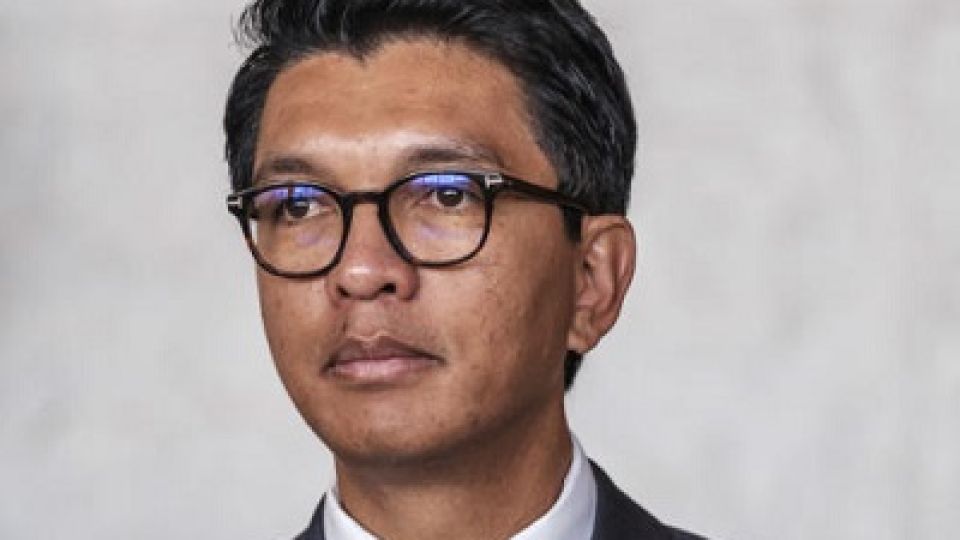from MARIO RAJOMAZANDRY in Antananarivo, Madagascar
Madagascar Bureau
ANTANANARIVO, (CAJ News) – MADAGASCAR is descending into turmoil more than a month before presidential elections.
This mayhem evokes memories of a rebellion and subsequent divisive elections that have rocked the world’s second-largest island country in almost a decade-and-a-half.
Instability, which can be traced back to the post-independence era, has cast doubts on the country holding credible elections on November 9, with a runoff on 20 December necessary if there is no outright winner.
Campaigning officially opens on October 9 but already, the country, a member of the Southern African Development Community (SADC), has descended into protests against the candidature of Andry Rajoelina (49).
The media entrepreneur has been the incumbent until recently fulfilling a constitutional requirement to resign as president, following his nomination to run again for the presidency on the card of the centre-left Young Malagasies Determined.
The fact that he is in the running has triggered controversy in that it is an apparent violation of a political agreement, reached to solve long-running political crises in the country, that he does not contest the upcoming poll.
The African Union (AU) and United Nations (UN) mediated the agreement, triggered by the ouster of then president, Marc Ravalomanana, in 2019.
Rajoelina argues the agreement is non-binding.
President from 2002 to 2009, Ravalomanana (73) is back in contention, among the 13 candidates (among them two ex-presidents) vying for the presidency in what is predicted to be a fierce contest in the Indian Ocean island next month.
Hery Rajaonarimampianina (64), who led from 2014 to 2018, is another ex-president in contention.
In addition to Rajoelina’s defiance of the peace agreement, authorities have stoked the fires by appointing Prime Minister, Christian Ntsay, an ally of the president, to run the country until the elections.
Opposition and critics have dubbed this an “institutional coup” and believe he would be biased in favour of Rajoelina in the polls.
The President of the Senate, a position currently held by Herimanana Razafimahefa, is supposed to assume the reins when a president resigns. Razafimahefa has been quoted as citing personal reasons in refusing the offer.
Adding to the commotion, eleven opposition candidates, known as the Collectif des 11, are against Rajoelina’s candidacy because he is a naturalised French. This, they believe, disqualifies him from holding office.
The Constitutional Court, which critics allege is biased, has rejected the opposition’s appeal, leaving them further infuriated.
Matters came to a head this week. On Monday, Antananarivo, the capital of the former French colony, was a warzone.
Here, opposition candidates and their supporters ran battles with the security forces.
Police fired tear gas to disperse opposition supporters that had gathered at the Place du 13 Mai, which is synonymous with political protests in the island nation.
The Human Rights Foundation (HRF) condemned what it termed a violent repression by the police.
“HRF also condemns the decision taken by the regime last week to prevent an opposition rally from taking place in a stadium in the capital,” said a spokesperson of the group.
The Barea Stadium was a scene of bloodshed last August when it hosted the 11th Indian Ocean Island Games.
At least 12 people died and 80 were injured.
While it was a sporting event, security think-tanks had warned that critics of the government and protest movements would overcrowd the venue and perpetrate opportunistic crimes to capitalise on the presence of international media to draw attention to their grievances.
Authorities have increased police presence in the capital to contain any political rallies.
Crisis24 has forecast political gatherings are likely nationwide ahead of the elections, especially in Antananarivo.
“Campaigns have historically proven tense periods in Madagascar, involving an increased risk of political violence,” it stated.
Roadblocks and additional restrictive measures such as temporary curfews and internet shutdowns have not been ruled out.
A glance into Madagascar’s history since independence from France in 1960 makes for gloomy reading.
The administration of first president, Philibert Tsiranana, collapsed in 1972 after popular resentment for maintaining economic and political ties with the ex-coloniser France.
Successive military governments also bowed out.
The 2001 election that brought Ravalomanana to power also caused a standoff.
He was ousted in 2009 by a Rajoelina-led movement, which was widely condemned as a coup.
Rajoelina, after succumbing to international pressure not to contest the 2013 election, was re-elected in 2018.
In 2021, police reported they had thwarted an assassination attempt on Rajoelina.
In addition to the political turbulence, the country of 30,5 million people is emerging from its worst drought in 40 years and a series of cyclones, disasters blamed on climate change.
– CAJ News

